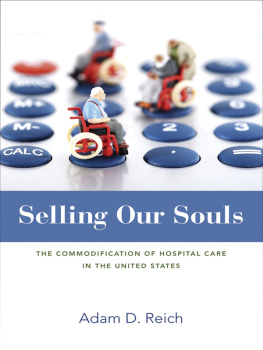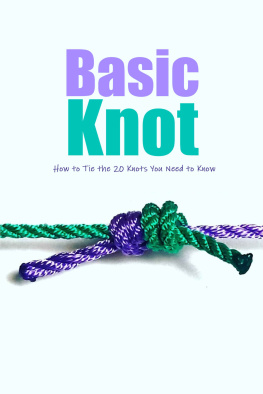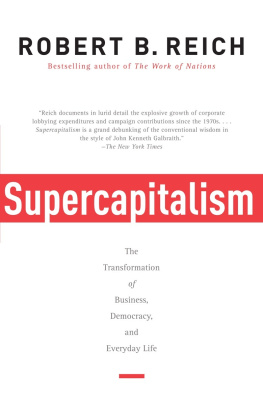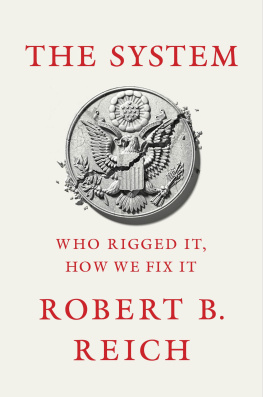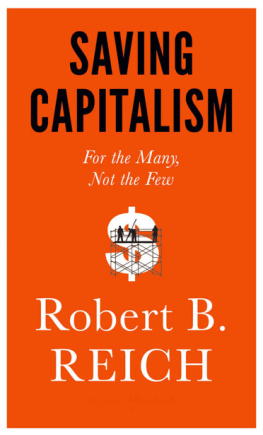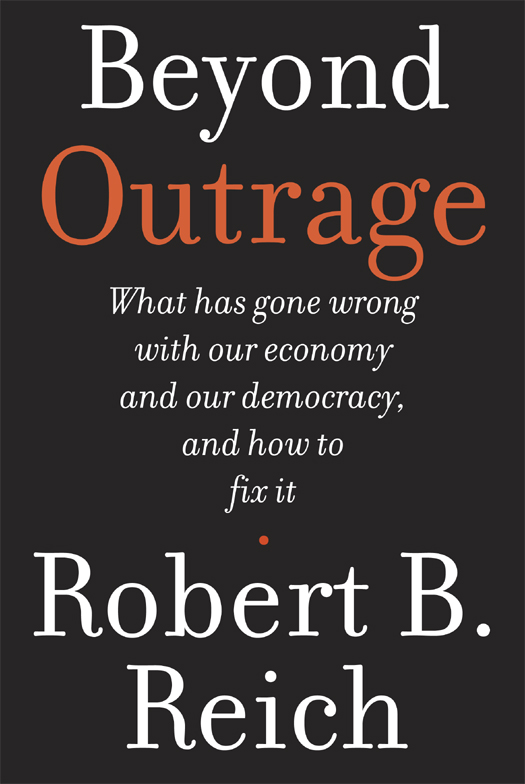In this eBook exclusive, Robert B. Reich urges Americans to get beyond mere outrage about the nations increasingly concentrated wealth and corrupt politics in order to mobilize and to take back our economy and democracy.
Americans cant rely only on getting good people elected, Reich argues, because nothing positive happens in Washington unless good people outside Washington are organized to help make those things happen after the election. But in order to be effectively mobilized, we need to see the big picture. Reich connects the dots for us, showing why the increasing share of income and wealth going to the top has hobbled jobs and growth for everyone else, while undermining our democracy; has caused Americans to become increasingly cynical about public life; and has turned many Americans against one another. He also explains why the proposals of the regressive right are dead wrong and provides a clear road map for what must be done instead. Here is a blueprint for action for everyone who cares about the future of America.
Beyond
Outrage
What has gone wrong
with our economy
and our democracy,
and how to
fix it
Robert B. Reich

Alfred A. Knopf
New York
2012
THIS IS A BORZOI EBOOK ORIGINAL
PUBLISHED BY ALFRED A. KNOPF
Copyright 2012 by Robert B. Reich
All rights reserved. Published in the United States by Alfred A. Knopf, a division of Random House, Inc., New York, and in Canada by Random House of Canada Limited, Toronto.
www.aaknopf.com
Knopf, Borzoi Books, and the colophon are registered trademarks of Random House, Inc.
eISBN: 978-0-307-96182-2
Cover design by Carol Devine Carson
v3.1
To the Occupiers, and all others committed to taking back our economy and our democracy
Contents
Part One
The Rigged Game
Part Two
The Rise of the Regressive Right
Part Three
Beyond Outrage: What You Need to Do
Introduction
Ive written this eBook to give you the big picture of why and how our economy and our democracy are becoming rigged against average working people, what must be done, and what you can do about it. Ive called it Beyond Outrage for a very specific reason. Your outrage is understandable. Moral outrage is the prerequisite of social change. But you also need to move beyond outrage and take action. The regressive forces seeking to move our nation backward must not be allowed to triumph.
I have been involved in public life, off and on, for more than forty years. Ive served under three presidents. When not in office, Ive done my share of organizing and rabble-rousing, along with teaching, speaking, and writing about what I know and what I believe. I have never been as concerned as I am now about the future of our democracy, the corrupting effects of big money in our politics, the stridency and demagoguery of the regressive right, and the accumulation of wealth and power at the very top. We are perilously close to losing an economy and a democracy that are meant to work for everyone and to replacing them with an economy and a government that will exist mainly for a few wealthy and powerful people.
A presidential election year can draw peoples attention to larger challenges facing our nation. But elections can also be distracting. The media focus on the gamewhos up and whos down and which political strategies are winning or losingrather than on the big issues. And campaigns are geared only to winning on Election Day rather than to building long-term strategies and movements for fundamental change.
This book is meant to help you focus on what needs to be done and how you can contribute, and to encourage you not to feel bound by what you think is politically possible this year or next. You need to understand why the stakes are so high and why your participationnow and in the futureis so important. Ive tried to array concepts and arguments in a way that youll find helpful. All the facts Ive cited are from government reports unless otherwise indicated. In my experience, nothing good happens in Washington unless good people outside Washington become mobilized, organized, and energized to make it happen. Nothing worth changing in America will actually change unless you and others like you are committed to achieving that change.
Connecting the Dots
The first thing you need to do is connect the dots and understand how many troubling but seemingly unrelated things are interwoven. The challenge we face is systemic. The fundamentals of our economy are out of whack, which has distorted our democracy, and these distortions, in turn, are making it harder to fix the economic fundamentals. Later in the book well examine several of these dots in detail, but now Id like you to see the big picture.
The first dot: For three decades almost all the gains from economic growth have gone to the top. In the 1960s and 1970s, the wealthiest 1 percent of Americans got 910 percent of our total income. By 2007, just before the Great Recession, that share had more than doubled, to 23.5 percent. Over the same period the wealthiest one-tenth of 1 percent tripled its share. We havent experienced this degree of concentrated wealth since the Gilded Age of the late nineteenth century. The 400 richest Americans now have more wealth than the entire bottom half of earners150 million Americansput together. Meanwhile, over the last three decades the wages of the typical worker have stagnated, averaging only about $280 more a year than thirty years ago, adjusted for inflation. Thats less than a 1 percent gain over more than a third of a century. Since 2001, the median wage has actually dropped.
This connects to
The second dot: The Great Recession was followed by an anemic recovery. Because so much income and wealth have gone to the top, Americas vast middle class no longer has the purchasing power to keep the economy goingnot, at least, without going deeper and deeper into debt. But debt bubbles burst. The burst of 2008 ushered in a terrible recessionthe worst economic calamity to hit this country since the Great Depression of the 1930sas middle-class consumers had to sharply reduce their spending and businesses, faced with declining sales, had to lay off millions. We bottomed out, but the so-called recovery has been one of the most anemic on record. Thats because the middle class still lacks the purchasing power to keep the economy going and can no longer rely on borrowing.
While at the same time
The third dot: Political power flows to the top. As income and wealth have risen to the top, so has political clout. Obviously, not everyone whos rich is intentionally corrupting our democracy. For those so inclined, however, the process is subtle, if lethal. In order to be elected or reelected, politicians rely greatly on advertising, whose costs have risen as campaign spending escalates. They find the money where more and more of it is locatedwith CEOs and other top executives of big corporations and with traders and fund managers on Wall Street. The wealth of these people also works its way into politics through the corporations they run or own, which employ legions of lobbyists and public relations experts. And their wealth buys direct access to elected officials in informal dinners, rounds of golf, overnight stays in the Lincoln Bedroom, and fancy boondoggles.



